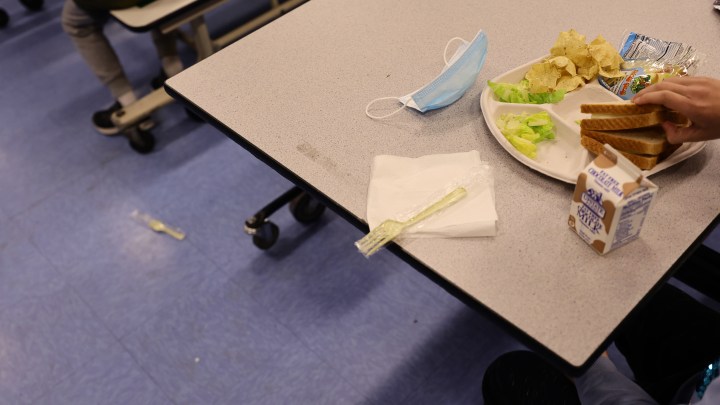
For 2 years, there was such a thing as a free lunch — at public schools. Not anymore.
For 2 years, there was such a thing as a free lunch — at public schools. Not anymore.

For the past two years, most public schools in the U.S. have provided free meals to students. But that federal pandemic relief program has ended. With the start of the new school year, eligible students will need to enroll in free or reduced-price lunch programs, and others will just have to pay.
There are historical reasons that — for most students — there’s no such thing as a free lunch.
The national school lunch program has its roots in the recruitment of soldiers for World War II. Many young men had grown up in the Great Depression, and they were malnourished.
“They were not physically fit, a surprisingly high percentage — Truman was disturbed by that,” said archivist Randy Sowell at the Harry S. Truman Presidential Library.
In 1946, Truman signed a law establishing nationwide public school lunches. One of its goals was to make use of surplus agricultural products.
“We’re talking peanuts, milk, beef — things that human beings consume on a daily basis,” said Ashton Ellett, an archivist at the University of Georgia.
The idea of providing free lunches didn’t really enter the conversation.
“There was some rhetoric,” Sowell said. “‘You should not be teaching children at an early and impressionable part of their lives to expect handouts from the federal government.'”
A 2010 law allowed districts with a certain percentage of students on government assistance to provide free meals to everyone.
Emily Gutierrez with the Urban Institute said that the majority of parents the group surveyed want free meals to be universal, especially after their kids got them for two years.
“Folks respond much worse to the removal of some benefit rather than to be provided the benefit for the first time,” Gutierrez said. “So that means it’s going to be harder to take something away from families than it is to decide to give it to them in the first place.”
Now, some states are getting involved. California has started providing free lunches, and Colorado voters will decide whether to do so in November.
There’s a lot happening in the world. Through it all, Marketplace is here for you.
You rely on Marketplace to break down the world’s events and tell you how it affects you in a fact-based, approachable way. We rely on your financial support to keep making that possible.
Your donation today powers the independent journalism that you rely on. For just $5/month, you can help sustain Marketplace so we can keep reporting on the things that matter to you.











